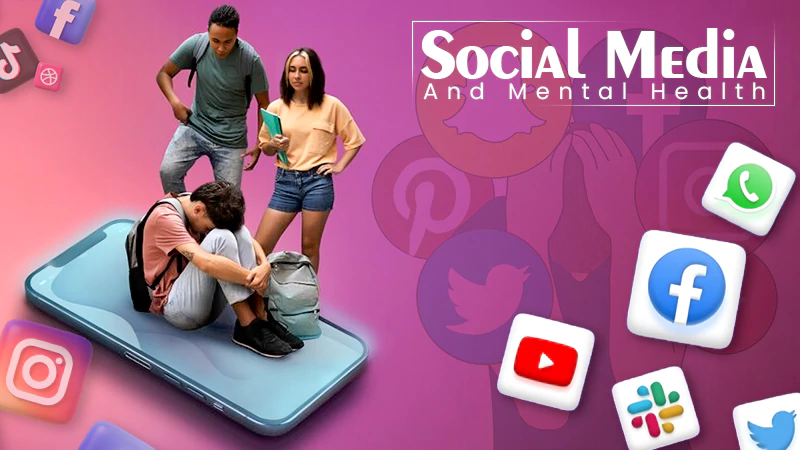- Understanding the Serge Fondja NSMC Facebook Connection
- The Synergy of Professional and Institutional Social Media
- Best Practices for Healthcare Social Media in 2025
- Strategic Content Types and Campaigns
- Challenges in Healthcare Social Media Management
- Platform Stability and Algorithm Changes
- Future Trends in Healthcare Social Media (2025 and Beyond)
- Expanded Use of Multimedia and Interactive Content
- Actionable Recommendations for Healthcare Providers
- Conclusion
The nature of social media has become an essential part of the digital communication sector that gives healthcare professionals and institutions an opportunity to engage with patients, educate them regarding their health, and build communities in the rapidly changing digital communication environment. The Serge Fondja NSMC Facebook presence exemplifies how healthcare entities effectively leverage social media while adhering to stringent ethical and privacy standards. This all-inclusive material examines the meaning, best practices, issues, and future directions of healthcare social media, with the case of the Serge Fondja and North Shore Medical Center (NSMC) Facebook affiliation.
The Importance of Social Media in Healthcare
Enhancing Communication and Engagement
Social media platforms provide healthcare organizations with unparalleled opportunities to communicate directly with patients and communities. Through active Facebook engagement, healthcare professionals like Serge Fondja and institutions such as NSMC share timely health information, address patient concerns, and promote preventive care. This direct communication fosters trust, transparency, and stronger patient-provider relationships.
Building Professional Networks
In professional activities, Facebook is not only a way of interacting with patients but also a necessity in networking with others, publishing medical research, and engaging in professional development in the case of professionals such as Serge Fondja. Collaboration between healthcare providers in the country and across the world has increased through this digital existence.
Supporting Institutional Goals
The Facebook presence of the NSMC helps the company to achieve its mission through health education, acknowledging the staff, and helping to recruit qualified professionals. Social media activities will be in line with their overall strategic objectives to enhance the health status of people in the community and institutional transparency.
Understanding the Serge Fondja NSMC Facebook Connection
Who is Serge Fondja?
Serge Fondja is a medical practitioner who uses social networking sites actively and who is an exemplar of the new type of medical practitioner practicing personal branding and professionalism simultaneously. His Facebook profile is a place to share knowledge, build health awareness, and network with his patients and medical peers.
North Shore Medical Center’s Digital Presence
Facebook is an important medium that is being used by NSMC to ensure that its communication channels with its community remain open. The digital strategy of the center is based on educational content, promotion of health activities, staff stories, and real-time updates in health crises.
The Synergy of Professional and Institutional Social Media
The collaboration between Serge Fondja’s individual online presence and NSMC’s institutional Facebook platform strengthens overall community engagement and helps establish a trustworthy and effective healthcare communication ecosystem.
Best Practices for Healthcare Social Media in 2025
1. Defining Clear Social Media Goals
Setting Specific, Measurable, Achievable, Relevant, and Time-bound (SMART) goals is foundational. For example, NSMC might aim to increase Facebook engagement by 20% within six months by sharing targeted health education posts.
2. Creating Patient-Centered Content
Content must be valuable and accessible, including infographics, videos, interactive posts, and simple language that caters to diverse literacy levels. Educational posts on managing chronic conditions, preventive care, and wellness tips resonate well with audiences.
3. Ensuring Privacy and Ethical Compliance
Adhering to HIPAA and other regulations is non-negotiable. Healthcare professionals must avoid sharing patient-identifiable information and maintain professional boundaries on Facebook. NSMC and Serge Fondja exemplify this balance by maintaining strict privacy protocols and educating their teams on digital ethics.
4. Fostering Two-Way Communication
Engagement is dynamic and interactive. Promptly responding to comments, messages, and community questions builds trust and fosters an inclusive environment where patients feel heard and supported.
5. Implementing Data-Driven Strategies
Using Facebook’s analytics tools and other social media management software helps monitor content performance and audience engagement. Continuous refinement based on insights ensures content remains relevant and impactful.
For a detailed example of electronic components and identifiers similar to such codes, explore 20V 1000µF SMD 4×5.4mm Electrolytic Capacitor KiCad.
Strategic Content Types and Campaigns
Educational Health Content
Videos, infographics, and articles explaining medical conditions, treatment options, and health tips empower patients to make informed decisions.
Staff Spotlights and Institutional Achievements
Showcasing NSMC staff achievements humanizes the healthcare experience, boosts staff morale, and strengthens community trust.
Crisis Communication
During pandemics or local health emergencies, Facebook serves as a vital channel for real-time updates, dispelling misinformation, and coordinating responses.
Recruitment Campaigns
Highlighting workplace culture and professional opportunities helps NSMC attract top healthcare talent. Serge Fondja’s social media profile supports these efforts through professional networking.
User-Generated Content and Community Stories
Encouraging patients to share testimonials or participate in health awareness campaigns builds an authentic community feel.
A related look at digital identity in community contexts includes events like Highland High School Class of 2023 Photos by Julian Cajigas.
Challenges in Healthcare Social Media Management
Balancing Transparency with Privacy
Healthcare organizations must manage the tension between openness and confidentiality, ensuring compliance with legal and ethical standards while engaging users authentically.
Handling Negative Feedback
Constructive responses to criticism or misinformation can mitigate reputation risks. Crisis management plans are essential to address potential social media controversies swiftly.
Platform Stability and Algorithm Changes
Social media platforms periodically change algorithms or policies, as seen with TikTok’s challenges in 2025. Diversifying presence across platforms like Facebook, Instagram, and emerging venues helps mitigate risks.
Resource Allocation
Effective social media management requires dedicated personnel, technology investments, and ongoing training — a challenge for some healthcare institutions.
Future Trends in Healthcare Social Media (2025 and Beyond)
Integration with Telehealth and AI
AI-powered chatbots and telemedicine tools integrated with social media platforms will enhance patient engagement and streamline communication.
Personalization and Behavioral Insights
Data analytics will allow healthcare providers to deliver personalized content based on patient preferences and behavioral data.
For development placeholders and coding references, consider checking resources like K2S CC Ludella.
Expanded Use of Multimedia and Interactive Content
Virtual reality, augmented reality, and interactive educational experiences will become more common as technology advances.
Regulatory Evolution
As healthcare social media use grows, expect evolving regulations to ensure privacy and accuracy of health-related information online. For more context on system updates and unique identifiers, see FTS BIOS 7.0.2 Update.
Actionable Recommendations for Healthcare Providers
- Develop a clear, measurable social media strategy aligned with institutional goals.
- Prioritize patient education using diverse, accessible content formats.
- Implement strict privacy and ethical guidelines with ongoing staff training.
- Encourage active community engagement with timely, empathetic responses.
- Leverage analytics tools to monitor and refine social media activities.
- Diversify social media platform use to reduce risks associated with platform-specific changes.
- Prepare a social media crisis management plan to address potential reputation issues quickly and effectively.
Conclusion
The Serge Fondja NSMC Facebook connection stands as a robust model of healthcare social media success in 2025. It shows how medical workers and organizations could successfully utilize Facebook to foster trust, community education, and professional development without compromising ethical standards and patient privacy. With the constant development of the social media, the adoption of strategic, patient-centred methods such as the one illustrated by Serge Fondja and NSMC will be critical in enhancing healthcare communication and related outcomes.







